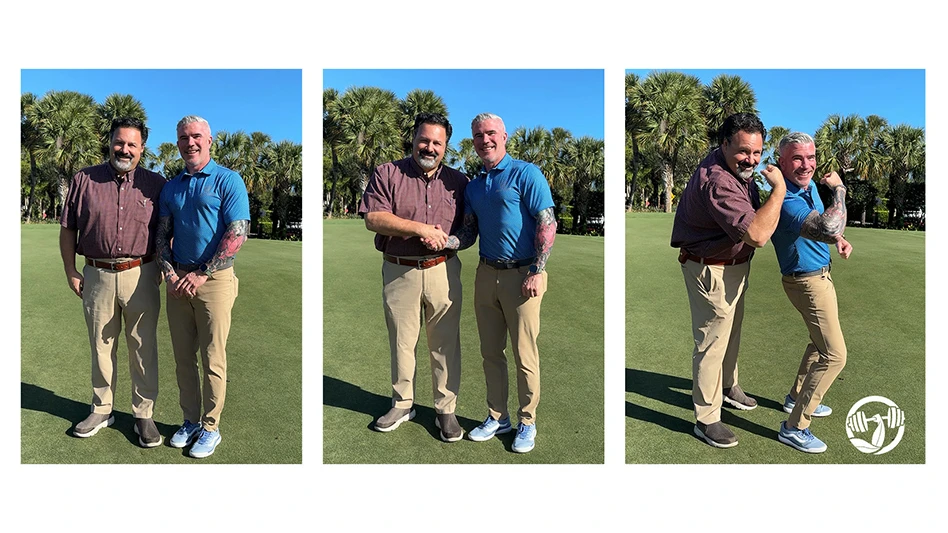Spring is almost here. And for many of you, that means a new golf season. The fairways and greens will be perfectly groomed soon. Or will they?
As you welcome new members of the maintenance staff, the assembling team will battle the elements, pesticides and golfers’ impacts. Will the team be a winner? Will the team create a course that exceeds golfers’ expectations?
The determining factor will be your effectiveness as supervisor of team members. You’re the Phil Jackson, Don Shula, Mike Krzyzewski or Joe Torre of the team.
Few supervisors fully appreciate the awesome responsibility and enormous potential of supervision. Responsibilities include:
• Determining the productivity and job-satisfaction level of each employee you supervise;
• Realizing the interpersonal relationship you have with the employees you supervise is – other than family and close friends – the most important interpersonal relationship in their lives; and
• Impacting their career though the training, development, coaching and role modeling you provide.
The enormous potential is:
• Eager employees who excel in their tasks and contribute to winning the battle;
• Employees who enjoy and cherish their job and whose enthusiasm is infectious with other employees and golfers;
• Employees with job experiences, successes and personal growth that contribute positively to their personal and family lives;
• Employees with successful careers at your course/club or somewhere else;
• A winning team; and
• Exceeding golfers’ expectations.
Supervision isn’t the only responsibility you have. It might not be the role that takes the most time, but it’s the most important. Successful superintendents recognize that the best use of their time is supervising.
But what can you do to fulfill these responsibilities and reap the rewards of the potential? First, we must address a myth about work.
Our intuition and society tell us outstanding job productivity and extraordinary job satisfaction are at odds. But they’re not. When productivity came primarily from hard physical work, attaining both was difficult. Today, however – with the changing nature of work and the development of modern personnel management principles – the incompatibility of productivity and job satisfaction is a myth. Successful businesses and organizations are providing evidence that managers and employees can achieve superior performance and extraordinary job satisfactions. Such success doesn’t happen by accident. Like any other success, it happens through focus, commitment, knowledge, learning, experimentation, patience and perseverance.
To excel as a supervisor, you must understand what creates superior productivity and extraordinary job satisfaction. Employee success needs can be divided into those provided primarily by the club or course and those provided primarily by the supervisor.
The primarily course-provided-success needs are:
• Fair compensation. The emphasis here is on “fair.” Wages, benefits and working conditions (including hours) must be competitive with similar jobs in the community. You judge the fairness of your compensation compared with other golf course superintendents and others with positions of similar responsibility. Your employees judge fairness compared with similar jobs in the community.
• A meaningful job. Research about motivation verifies our intuition that all of us want to spend our work time accomplishing something meaningful. Two dimensions are critical. We need to see that what we do contributes directly to the success of the course (task significance) and what we do to contribute to our community, society and world (the vision of the course).
• Opportunities for growth and advancement. It’s often said that every day a business or golf course doesn’t grow, it falls behind. The same can be said for us as workers. Every day we don’t learn, grow and develop, we fall behind in terms of opportunities for the remainder of our work life.
Many of you are frustrated because you don’t have control of these success factors – especially compensation. There is, however, a lot you can do. First, you can become an advocate for your employees. On a recent plane trip, I sat next to a gentleman who, six months ago, became the operations manager of a manufacturing plant. In his short tenure, plant productivity increased 20 percent. The employees hadn’t had a pay increase in three years. So throughout the last month, he worked with his employees, and together they developed the case for an increase of employee compensation. Part of the case was that he wouldn’t accept an increase until his employees did. Work with those you supervise because you are a member of the team as well as the supervisor.
You also must become a great communicator. Communicate that you value what workers do and value them as human beings. Communicate that what they do is critically important to the golfers, course and community.
In a superintendent’s role as a supervisor, success needs to include:
• Clear job and performance expectations. Think about your frustration with unclear expectations from the green committee, pro or general manager. Employees feel that same frustration when work rules, job assignments and performance expectations are unclear. That frustration results in poor performance and low job satisfaction.
• Know what’s succeeding. One reason most of us enjoy sports is because the scoreboard tells us who’s winning. Similarly, in golf course maintenance, everyone needs to know whether they are “winning,” by which winning means successfully accomplishing expected performance outcomes. The supervisor must be the “scoreboard” by providing copious amounts of high-quality feedback.
• A trusting, respectful relationship with one’s supervisor. Other than the relationships with one’s family and some close friends, an employee’s relationship with his supervisor is their most important interpersonal relationship.
Embrace the challenge of supervision and work responsibilities to reap the potential of successful supervision. You can be a great supervisor, and successful employees can achieve superior performance and extraordinary job satisfaction. GCN
Robert A. Milligan, Ph.D., is professor emeritus from Cornell University and senior consultant with Madison, Wis.-based Dairy Strategies. He can be reached at 651-647-0495 or rmilligan@trsmith.com.
As you welcome new members of the maintenance staff, the assembling team will battle the elements, pesticides and golfers’ impacts. Will the team be a winner? Will the team create a course that exceeds golfers’ expectations?
The determining factor will be your effectiveness as supervisor of team members. You’re the Phil Jackson, Don Shula, Mike Krzyzewski or Joe Torre of the team.
Few supervisors fully appreciate the awesome responsibility and enormous potential of supervision. Responsibilities include:
• Determining the productivity and job-satisfaction level of each employee you supervise;
• Realizing the interpersonal relationship you have with the employees you supervise is – other than family and close friends – the most important interpersonal relationship in their lives; and
• Impacting their career though the training, development, coaching and role modeling you provide.
The enormous potential is:
• Eager employees who excel in their tasks and contribute to winning the battle;
• Employees who enjoy and cherish their job and whose enthusiasm is infectious with other employees and golfers;
• Employees with job experiences, successes and personal growth that contribute positively to their personal and family lives;
• Employees with successful careers at your course/club or somewhere else;
• A winning team; and
• Exceeding golfers’ expectations.
Supervision isn’t the only responsibility you have. It might not be the role that takes the most time, but it’s the most important. Successful superintendents recognize that the best use of their time is supervising.
But what can you do to fulfill these responsibilities and reap the rewards of the potential? First, we must address a myth about work.
Our intuition and society tell us outstanding job productivity and extraordinary job satisfaction are at odds. But they’re not. When productivity came primarily from hard physical work, attaining both was difficult. Today, however – with the changing nature of work and the development of modern personnel management principles – the incompatibility of productivity and job satisfaction is a myth. Successful businesses and organizations are providing evidence that managers and employees can achieve superior performance and extraordinary job satisfactions. Such success doesn’t happen by accident. Like any other success, it happens through focus, commitment, knowledge, learning, experimentation, patience and perseverance.
To excel as a supervisor, you must understand what creates superior productivity and extraordinary job satisfaction. Employee success needs can be divided into those provided primarily by the club or course and those provided primarily by the supervisor.
The primarily course-provided-success needs are:
• Fair compensation. The emphasis here is on “fair.” Wages, benefits and working conditions (including hours) must be competitive with similar jobs in the community. You judge the fairness of your compensation compared with other golf course superintendents and others with positions of similar responsibility. Your employees judge fairness compared with similar jobs in the community.
• A meaningful job. Research about motivation verifies our intuition that all of us want to spend our work time accomplishing something meaningful. Two dimensions are critical. We need to see that what we do contributes directly to the success of the course (task significance) and what we do to contribute to our community, society and world (the vision of the course).
• Opportunities for growth and advancement. It’s often said that every day a business or golf course doesn’t grow, it falls behind. The same can be said for us as workers. Every day we don’t learn, grow and develop, we fall behind in terms of opportunities for the remainder of our work life.
Many of you are frustrated because you don’t have control of these success factors – especially compensation. There is, however, a lot you can do. First, you can become an advocate for your employees. On a recent plane trip, I sat next to a gentleman who, six months ago, became the operations manager of a manufacturing plant. In his short tenure, plant productivity increased 20 percent. The employees hadn’t had a pay increase in three years. So throughout the last month, he worked with his employees, and together they developed the case for an increase of employee compensation. Part of the case was that he wouldn’t accept an increase until his employees did. Work with those you supervise because you are a member of the team as well as the supervisor.
You also must become a great communicator. Communicate that you value what workers do and value them as human beings. Communicate that what they do is critically important to the golfers, course and community.
In a superintendent’s role as a supervisor, success needs to include:
• Clear job and performance expectations. Think about your frustration with unclear expectations from the green committee, pro or general manager. Employees feel that same frustration when work rules, job assignments and performance expectations are unclear. That frustration results in poor performance and low job satisfaction.
• Know what’s succeeding. One reason most of us enjoy sports is because the scoreboard tells us who’s winning. Similarly, in golf course maintenance, everyone needs to know whether they are “winning,” by which winning means successfully accomplishing expected performance outcomes. The supervisor must be the “scoreboard” by providing copious amounts of high-quality feedback.
• A trusting, respectful relationship with one’s supervisor. Other than the relationships with one’s family and some close friends, an employee’s relationship with his supervisor is their most important interpersonal relationship.
Embrace the challenge of supervision and work responsibilities to reap the potential of successful supervision. You can be a great supervisor, and successful employees can achieve superior performance and extraordinary job satisfaction. GCN
Robert A. Milligan, Ph.D., is professor emeritus from Cornell University and senior consultant with Madison, Wis.-based Dairy Strategies. He can be reached at 651-647-0495 or rmilligan@trsmith.com.

Explore the March 2005 Issue
Check out more from this issue and find your next story to read.
Latest from Golf Course Industry
- Toro continues support of National Mayor’s Challenge for Water Conservation
- A different kind of long distance
- Golf Construction Conversations: Stephen Hope
- EnP welcomes new sales manager
- DLF opening centers in Oregon, Ontario
- Buffalo Turbine unveils battery-powered debris blower
- Beyond the Page 66: Keep looking up
- SePRO hires new technical specialist







